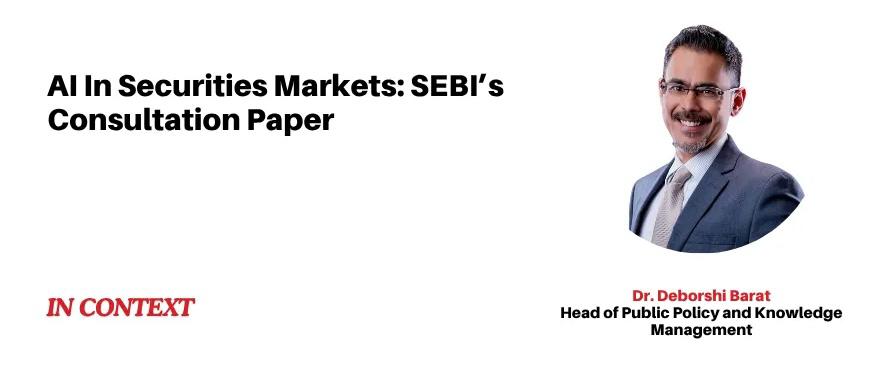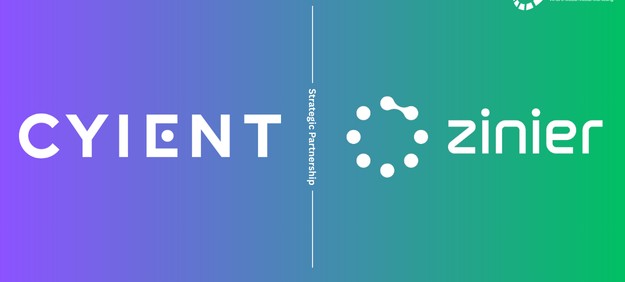 Image Source: BW Legal World
Image Source: BW Legal World
Key Highlights
The Securities and Exchange Board of India (SEBI) released a pivotal "Consultation Paper on Guidelines for Responsible Usage of AI/ML in Indian Securities Markets" on June 20, 2025, aiming to structure how exchanges, brokers, asset managers, and fintechs deploy artificial intelligence (AI) and machine learning (ML) technologies.
SEBI’s approach responds to escalating AI adoption in trading, surveillance, compliance, fraud detection, and investor services as Indian capital markets edge toward global digital norms.
The paper seeks public comment on key issues, including transparency, explainability, risk management, accountability, and the ethical implications of automated models—recognising both AI’s transformative promise and its systemic risks.
Background and Rationale: The Push for AI Governance
The securities markets have seen explosive growth in AI-driven applications, from high-frequency trading and robo-advisors, to automated compliance checks and voice/chatbot-based investor engagement. While these innovations improve market efficiency, they also introduce risks related to algorithmic biases, black-box decision-making, cyber vulnerabilities, and potential market manipulation. SEBI’s consultation paper is intended to:
Ensure that AI/ML technologies are deployed in a responsible, fair, and transparent manner.
Safeguard investor interests and market integrity amid rapid technology adoption.
Bring regulatory clarity and harmonise industry standards before AI scales to core market infrastructure and investor-facing functions.
Core Proposals of the Consultation Paper
Establish mandatory governance frameworks for all regulated entities using AI/ML, covering model validation, data quality, ongoing monitoring, and explainability checks.
Require market participants to maintain detailed documentation on AI/ML models, data sets, performance metrics, and risk controls, subject to scrutiny by SEBI and statutory auditors.
Introduce standards for human oversight, such as “human in the loop” protocols, to ensure accountability for automated decisions—especially those with material investor impact.
Mandate regular “AI impact assessments” to evaluate potential biases, unfair discrimination, and cybersecurity risks, with reporting to the regulator.
Prescribe transparency in client-facing AI applications: firms must disclose AI use to investors, enabling informed consent and providing avenues for redress in case of adverse effects.
Lay out ethical guidelines and professional accountability for data scientists, designating chief AI officers or equivalent compliance roles within regulated financial entities.
Solicit industry and public feedback on methods for handling potential errors, adversarial attacks, and failure scenarios associated with AI deployment.
Stakeholder Implications and Industry Reaction
Stock exchanges, brokers, mutual funds, depositories, and fintechs will need to overhaul AI governance, investing in new compliance functions and personnel.
Small and mid-sized entities may face challenges in meeting documentation and explainability standards; SEBI invites input on tiered application of requirements.
Tech vendors and AI solution providers may have to certify model safety, add explainability layers, and align software with SEBI specifications for security and auditability.
Investor protection groups have broadly welcomed the initiative, seeing it as a bulwark against unchecked automation and poor algorithmic transparency.
Some fintech leaders caution against over-regulation that could suppress innovation or create entry barriers, requesting regulatory sandboxes and pilot allowances.
Global Context and Regulatory Best Practices
SEBI’s proposals align with emerging international frameworks such as the EU’s AI Act and guidelines from the International Organization of Securities Commissions (IOSCO).
Core themes include risk-based supervision, proportionate regulation, and harmonisation of AI model governance with privacy and cyber laws.
The consultation process is designed to be iterative, with SEBI planning workshops and pilot programs to refine requirements before formal adoption.
Next Steps and Looking Ahead
Public comments are invited through August 15, 2025, following which SEBI will finalise guidelines and a compliance timeline.
A phased implementation is anticipated, with priority focus on systemically important institutions and high-risk AI applications.
The consultation underscores SEBI’s commitment to fostering responsible AI innovation while positioning Indian markets among the world’s most technologically advanced and secure.
Conclusion
SEBI’s 2025 consultation paper on AI in securities markets marks a watershed moment, charting a path between innovation and robust investor safeguards. As AI becomes inseparable from modern capital markets, the regulator’s push for accountability, transparency, and ethical conduct reflects a global rebalancing of financial technology’s promise and perils. The coming months will determine how India’s securities ecosystem adapts to these sweeping regulatory expectations.
Sources: BW Legal World
Advertisement
Advertisement








